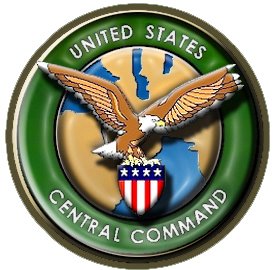The good and the bad: Be careful what you ask for
I'm usually not an on the fence kinda guy, but THIS story today gives me pause to be encouraged and skeptical all at the same time.
Iraq's President Talabani is quoted as saying:
he had been assured U.S. forces would remain in the country as long as needed - "no matter what the period."Now while I want our soldiers to come home soon, we all agree we want their return to be based on the clear and unequivocal completion of the mission and that they bring with them a clear and unequivocal victory. Much debate about these two points have provided for oft-times contentious and heated debate both here and around the blogoshpere. Nonetheless, these are my hopes and expectations.
That said, I have been encouraged of late that while the threat of civil war in Iraq loomed ominously in recent days, it turns out this has been averted, at least for a time. I am also encouraged that the improvements the Iraqi security forces and systems continue to make were able to hold up against the pressures of the conflicts between the Sunnis and the Shi'ites in the aftermath of the bombing of the mosque in Samarra.
My concerns, however, lay with Dr. al-Jaafari, his role in the United Iraqi Alliance, and his relationship with al-Sadr and his Mahdi Army militia. You should recall the problems al-Sadr has caused Iraqi and coalition forces for many a year now, and you should recall the "alleged" ties he has with Iran. It is well known that there continues to be conflicts and sectarian hostilities between the various factions inside the country, and perhaps while some may slap me for saying this, it is at the very least to be expected as a natural element of a country settling into where it's people stand and on whose side they're willing to be. But at some point the evolution from fractured "warring factions of self-preservation" to collective acceptance, peace, and unity for one cause-"Allah and Country" should prevail.
My skepticism comes from the notion that al-Sadr's militia has been actively engaged in recent days with assisting in security. I just have a very hard time taking that at face value. The article tells us that Shiities are being
frisked by al-Sadr's Mahdi Army militiamen in yellow button-down collar shirts and armed with Kalashnikov rifles and metal detector wandsand further that
The militia that kept order was the same force accused of going on a rampage of reprisal attacks against Sunni Muslim mosques and clerics after the bombing of the Shiite shrine in Samarra.Is it just me, or is there a problem with this concept? While it is consistent with my earlier statement that the natural evolution would see this development as a good sign that we are getting closer to Iraqis tending to their own business, I am quite skeptical as to whether al-Sadr's motives are pure, or that he may see an opportunity to strengthen his holdings on the minds of Shi'ites who would otherwise fear for their lives were they not to fervently follow any order or mandate this man were to issue. There is an old expression that seems fitting here:
Police and aides to al-Sadr agreed Thursday night the anti-American cleric's militiamen would help government security forces patrol the poor Shiite neighborhood after it was hit by a deadly bomb attack.
The government decision to legitimize patrols by the Mahdi Army - which had been going on anyway - appeared to have tacit U.S. military approval, even though American forces have fought protracted battles with the Shiite fighters for control of southern holy cities and the Sadr City Shiite stronghold.
Acceptance of the higher profile for the Mahdi Army, if only for a time, signaled the extreme importance U.S. authorities have put on quelling deadly sectarian violence after the Samarra bombing.
This is exactly what I asked for but not what I wantedI hope I turn out to be wrong in this case.



0 Comments:
Post a Comment
<< Home